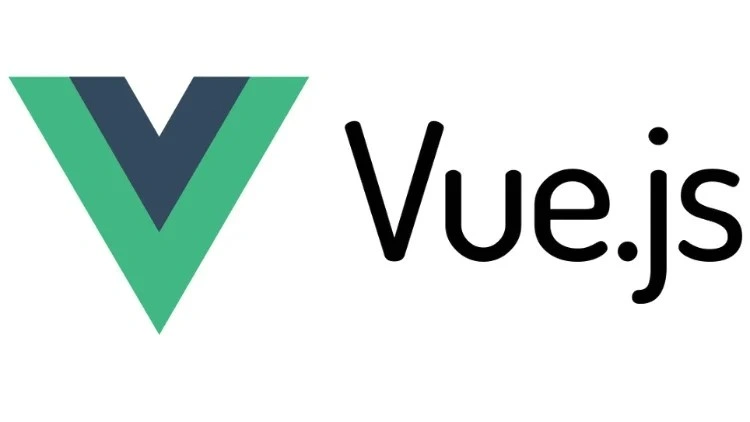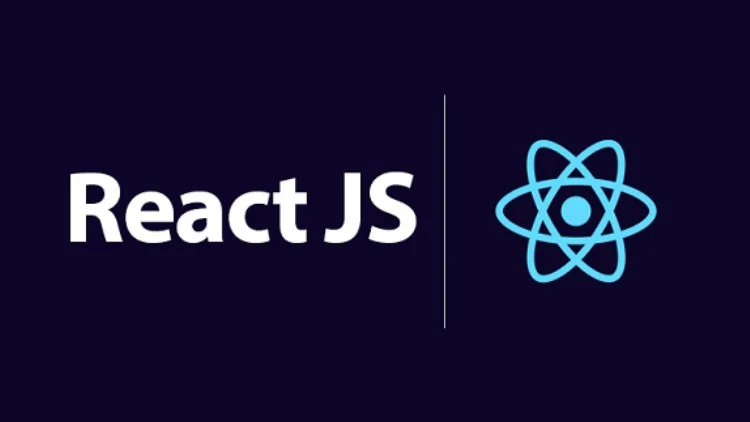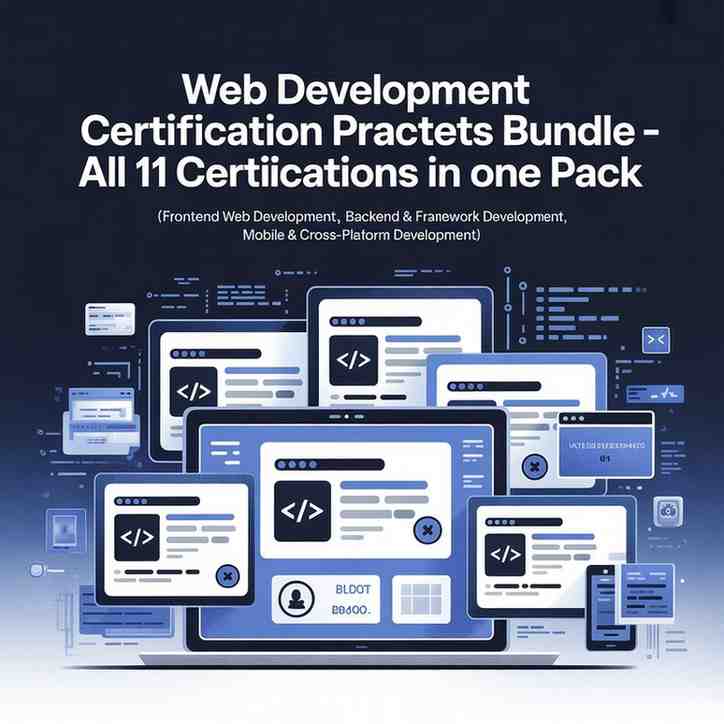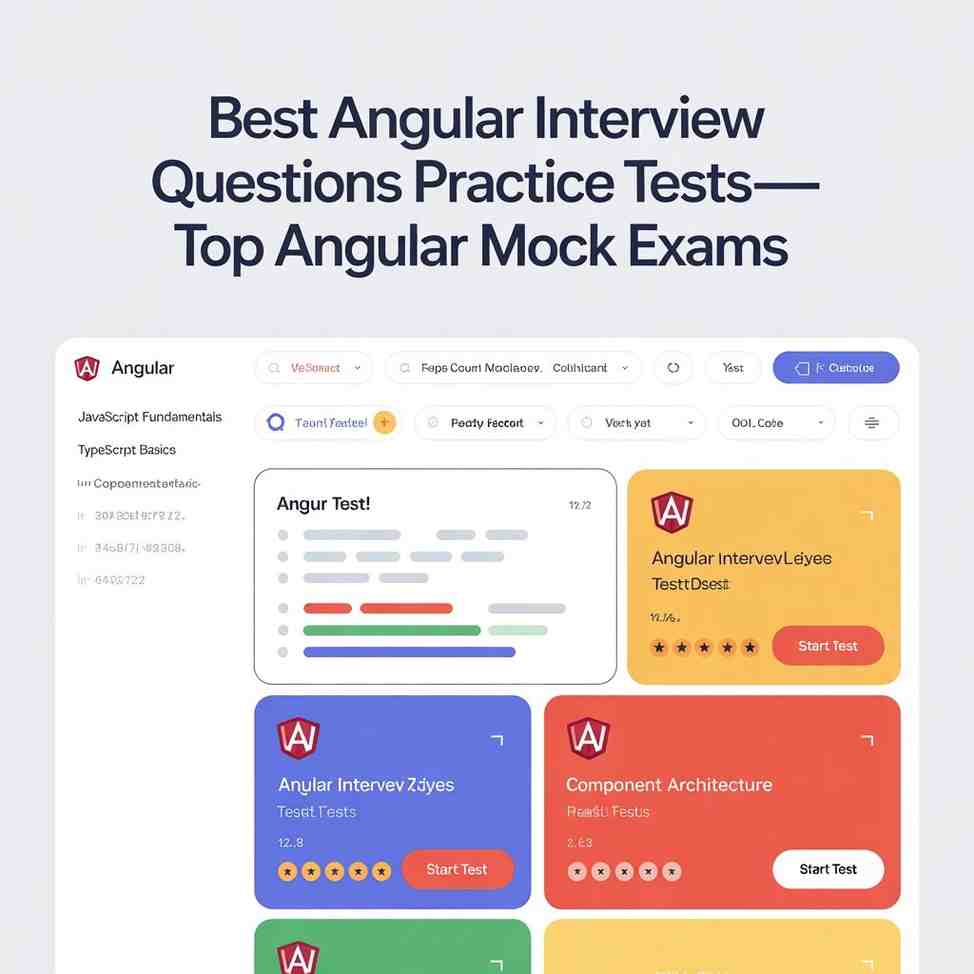Introduction
“Coding’s like a puzzle—you don’t get it ‘til the pieces click.” – Me, after a Vue.js epiphany
You’re gearing up for a Vue.js interview, your GitHub packed with projects, when a sneaky thought hits: “Do I really get how slots work?” That little doubt can shake you up. Vue.js, the slick JavaScript framework behind apps for companies like GitLab, is pulling in 1.5 million weekly downloads on npm in 2025. Getting a grip on its Vue.js core concepts is your key to walking into that interview with swagger.
I’m spilling the beans on the 12 Vue.js concepts you gotta nail before your big day, straight from my own late-night coding sessions and those “oh, that’s how it works” moments. These are the heart of Vue.js interview preparation, covering everything from reactivity to debugging. Whether you’re just starting out or you’ve been coding for years, this guide’s got your back. Ready to wow your interviewer? Let’s jump into Vue.js concepts for interviews!
Why These Concepts Are Your Interview Superpower
Vue.js interviews in 2025 aren’t just about slapping code together. Hiring folks want coders who can:
Build apps that react faster than a cat meme goes viral
Fix bugs without breaking into a cold sweat
Rock Vue 3’s new tricks like the Composition API
Explain techy stuff clearly, even under pressure
I learned this the hard way when a Vuex question left me tongue-tied in an interview. That fumble pushed me to master Vue.js core concepts, and now I’m sharing the 12 that keep popping up in 2025 interviews. These concepts will prep you for anything, from newbie basics to brain-bending advanced stuff.
The 12 Vue.js Concepts You Gotta Know
Here’s the lineup: 12 Vue.js concepts to master before your interview, grouped for easy learning. Each comes with an explanation, example, and a tip from my own coding adventures.
1. Reactivity System
What It Is: Vue’s reactivity system makes the UI update automatically when data changes, using JavaScript Proxies in Vue 3 to track everything efficiently.
Example:
<p>{{ count }}</p>
<button>Add One</button>
import { ref } from 'vue';
export default {
setup() {
const count = ref(0);
return { count };
}
};
console.log( 'Code is Poetry' );
Why It Matters: Interviewers love asking, “How does Vue handle reactivity?” Knowing Proxies shows you’re up on Vue 3.
My Tip: I bombed this question once. Keep it simple: “Vue tracks data changes and updates the screen for you.”
2. v-model for Two-Way Binding
What It Is: v-model lets form inputs sync data both ways, so what you type updates the data and vice versa.
Example:
<p>{{ message }}</p>
import { ref } from 'vue';
export default {
setup() {
const message = ref('');
return { message };
}
};
Why It Matters: Questions like “What’s v-model doing?” test if you get data binding.
My Tip: I nailed this by building a custom v-model. Try coding one to impress for senior roles.
3. Computed Properties
What It Is: Computed properties figure out values based on reactive data and cache the results to save processing power.
Example:
<p>Triple: {{ tripled }}</p>
import { ref, computed } from 'vue';
export default {
setup() {
const number = ref(3);
const tripled = computed(() => number.value * 3);
return { number, tripled };
}
};
Why It Matters: Interviewers ask, “Why use computed properties?” to check if you care about efficiency.
My Tip: I used a method instead of a computed property once, and it slowed things down. Stick to computed for stuff like this.
4. Component Basics
What It Is: Components are reusable chunks of Vue code with their own data, template, and logic, like Lego bricks for your app.
Example:
<!-- MyComponent.vue -->
<div>{{ greeting }}</div>
export default {
data() {
return { greeting: 'Yo, Vue!' };
}
};
Why It Matters: Questions like “What’s a Vue component?” test if you understand modularity.
My Tip: I wowed an interviewer by explaining single-file components. Mention .vue files to sound pro.
5. Props for Passing Data
What It Is: Props let parent components send data to kids, making components reusable and flexible.
Example:
<!-- Child.vue -->
<p>{{ name }}</p>
export default {
props: {
name: { type: String, required: true }
}
};
<!-- Parent.vue -->
Why It Matters: Interviewers ask, “How do you validate props?” to see if you prevent bugs.
My Tip: I skipped prop validation once, and it caused chaos. Always set type and required.
6. Slots for Custom Content
What It Is: Slots let parents inject content into child components, perfect for reusable layouts like modals.
Example:
<!-- Child.vue -->
<div>Fallback Text</div>
<!-- Parent.vue -->
<span>My Text</span>
Why It Matters: Questions about slots check if you can build flexible components.
My Tip: I impressed a recruiter with named slots. Study <slot name=”footer”> for bonus points.
7. v-if vs. v-show
What It Is: v-if adds or removes elements from the DOM based on a condition. v-show just hides them with CSS (display: none).
Example:
<p>I’m here!</p>
<button>Toggle</button>
import { ref } from 'vue';
export default {
setup() {
const visible = ref(true);
return { visible };
}
};
Why It Matters: Interviewers ask, “When’s v-if better than v-show?” to test performance smarts.
My Tip: I mixed these up early on. Use v-if for big changes, v-show for quick flips.
8. v-for for Lists
What It Is: v-for loops over arrays or objects to render lists, needing a unique :key to keep things smooth.
Example:
<ul>
<li>{{ fruit.name }}</li>
</ul>
import { ref } from 'vue';
export default {
setup() {
const fruits = ref([{ id: 1, name: 'Mango' }, { id: 2, name: 'Kiwi' }]);
return { fruits };
}
};
Why It Matters: Questions about v-for test how you handle dynamic data.
My Tip: I got a warning for missing :key once. Always add a unique :key.
9. Vuex Basics
What It Is: Vuex is Vue’s state management library for centralized data, great for big apps with shared stuff like user info.
Example:
import { createStore } from 'vuex';
export default createStore({
state: { score: 0 },
mutations: { addPoint(state) { state.score++; } }
});
Why It Matters: Interviewers ask, “When do you need Vuex?” to see if you know state management.
My Tip: I overused Vuex in a small app. Suggest Pinia for 2025—it’s lighter.
Resource: Gururo’s Vue.js practice tests have Vuex questions to drill.
10. Pinia for Modern State
What It Is: Pinia’s a lean state management tool for Vue 3, with a simpler setup and TypeScript love.
Example:
import { defineStore } from 'pinia';
export const useStore = defineStore('app', {
state: () => ({ score: 0 }),
actions: { addPoint() { this.score++; } }
});
Why It Matters: Pinia’s hot in 2025, and interviewers may ask how it beats Vuex.
My Tip: I switched to Pinia and it was a breeze. Talk up its TypeScript perks.
11. Composition API
What It Is: Vue 3’s Composition API organizes code in functions, making it flexible and TypeScript-friendly compared to Options API.
Example:
import { ref, computed } from 'vue';
export default {
setup() {
const score = ref(0);
const doubled = computed(() => score.value * 2);
return { score, doubled };
}
};
Why It Matters: Interviewers ask, “Why go Composition API?” to test your Vue 3 knowledge.
My Tip: I started using Composition API and my code got cleaner. Mention tree-shaking for cred.
12. Vue DevTools for Debugging
What It Is: Vue DevTools is a browser extension for checking out components, state, and events, making debugging a snap.
Example:
export default {
mounted() {
console.log('Pop open Vue DevTools!');
}
};
Why It Matters: Questions like “How do you debug Vue?” test real-world skills.
My Tip: I fixed a bug with Vue DevTools and felt like a hero. It’s a must-mention.
How to Own These Concepts
These 12 Vue.js concepts are your cheat code for interviews. Here’s how I make them stick:
Code Every Day: Build tiny apps with each concept, like a shopping list with v-for.
Explain It: I practiced teaching concepts to my dog (he’s a great listener).
Make a Project: Create a portfolio app, like a task tracker, using all 12 concepts.
Learn from Flubs: I got Pinia down by dissecting quiz mistakes.
Use Tools: Gururo’s Vue.js practice tests are awesome for testing your skills.
My Story: My buddy Leo crushed a 2024 interview by explaining v-if vs. v-show like a pro. He’d practiced Vue.js concepts for interviews for weeks and landed a dev gig. Prep makes you unstoppable!
Traps to Dodge
I’ve stumbled plenty. Here’s how to stay on track:
Skipping Vue 3: Composition API’s the 2025 standard—don’t sleep on it.
Overdoing Vuex: I used Vuex for a small app and regretted it. Pinia’s often better.
Ignoring Debug Tools: Vue DevTools saved me from a mess. Don’t just console.log.
Fun Fact: Evan You kicked off Vue.js in 2014, wanting a simpler spin on Angular. By 2025, it’s got over 200,000 GitHub stars!
Extra Goodies
Books:
Vue.js: Up and Running by Callum Macrae—perfect for starters.
Full-Stack Vue.js 2 and Laravel by Anthony Gore for deep dives.
Tools:
Vue DevTools for debugging like a boss.
Vite for fast Vue.js builds.
Websites:
Vue.js Docs (vuejs.org) for the good stuff.
Communities:
Vue.js Developers on Facebook.
r/vuejs on Reddit for coder chats.
Wrapping It Up
The 12 Vue.js concepts here are your secret weapon for killing it in 2025 Vue.js interviews. From nailing reactivity to debugging like a pro, these skills will make you the candidate everyone wants. Practice them, build something cool, and walk in ready to shine. Your dream job’s closer than you think.
Wanna start? Pick three concepts, code them into a small app, and explain them to a friend. As one dev told me, “You don’t master code by reading—you master it by breaking stuff.” Keep coding, and you’ll crush that interview. Drop your fave concept in the comments or tweet me your progress—I’m cheering you on!
Crush your 2025 Vue.js interview with Gururo’s expertly crafted practice tests, packed with Vue.js core concepts and mock exams to skyrocket your Vue.js interview preparation!
FAQs
What are the Vue.js core concepts for interviews?
Reactivity, v-model, and Composition API are key Vue.js concepts for interviews.
How do I start Vue.js interview preparation?
Practice Vue.js concepts for beginners like props and v-for on Gururo.
Are Vue.js concepts for beginners enough for interviews?
Yes, Vue.js concepts for beginners like v-if cover Vue.js interview concepts to know.
What are Essential Vue.js concepts for 2025?
Vue.js core concepts like Pinia and Vue DevTools are Essential Vue.js concepts for 2025.
How can Vue.js concepts for interviews help me?
Mastering Vue.js concepts for interviews boosts confidence for Vue.js interview preparation.
Where can I practice Vue.js interview concepts to know?
Gururo’s Vue.js practice tests cover Vue.js interview concepts to know like reactivity.
Should I focus on Must-know Vue.js interview concepts?
Yes, Must-know Vue.js interview concepts like slots are vital for Vue.js interview preparation

















